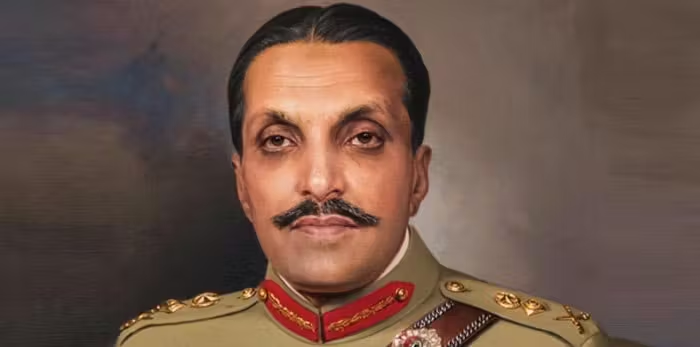Zia-ul-Haq: The Former Pakistani President and His Legacy
Introduction
General Zia-ul-Haq, born on August 12, 1924, was the 6th President of Pakistan and a pivotal military leader who played an essential role in shaping the country’s political, social, and economic landscapes. Known for his authoritarian rule, Zia‚Äôs tenure from 1978 to 1988 left a profound impact on Pakistan. In this article, we‚Äôll explore his early life, rise to power, key policies, and his controversial legacy.
Early Life and Career of Zia-ul-Haq
Born in Jalandhar, British India, Zia belonged to a military family and was initially commissioned into the British Indian Army before joining the Pakistan Army after the partition in 1947. He served in various key positions, rising through the ranks due to his skillful leadership and military expertise.
Zia-ul-Haq’s Rise to Power
Zia-ul-Haq’s path to becoming president of Pakistan was not a smooth one. He rose to prominence in 1977 when he led a military coup that ousted Prime Minister Zulfikar Ali Bhutto. Zia justified the coup as a means to combat corruption and political instability. Initially, Zia promised to restore democratic rule in Pakistan but ultimately, he imposed martial law and remained in power for 11 years.
Key Policies Under Zia-ul-Haq’s Regime
Zia’s regime was marked by several major policy shifts, both domestically and internationally. Some of the key policies include:
- Islamization of Pakistan:
Zia introduced a series of Islamic laws, including the Hudood Ordinance and the Islamic Ideology Council, which aimed to bring Pakistan closer to an Islamic system of governance. These changes significantly impacted the country’s social fabric, especially women‚Äôs rights and civil liberties. - Afghan Jihad and US Relations:
During the Soviet invasion of Afghanistan, Zia aligned Pakistan with the United States, providing critical support to the Afghan resistance fighters (Mujahideen). This not only enhanced Pakistan’s strategic importance globally but also set the stage for long-term consequences, including the rise of extremist groups. - Political Repression and Censorship:
Under Zia’s rule, political opposition was harshly suppressed. His government curtailed media freedom and severely censored political activities, thus stifling democracy and dissent. Zia also executed former Prime Minister Zulfikar Ali Bhutto in 1979, an act that remains controversial to this day.
Zia-ul-Haq’s Legacy
Zia-ul-Haq’s impact on Pakistan remains a subject of intense debate. On one hand, his policies brought certain economic growth, such as infrastructural development and a stronger military. On the other hand, his emphasis on Islamization and his authoritarian rule left a legacy of political instability, social unrest, and human rights abuses. Zia’s death in a plane crash in 1988 marked the end of an era, but the effects of his rule are still evident in Pakistan’s modern-day political landscape.
Conclusion: The Complex Legacy of Zia-ul-Haq
While Zia-ul-Haq was instrumental in shaping the direction of Pakistan, his tenure was marked by significant contradictions. His Islamic reforms were seen by some as necessary to bring Pakistan closer to its religious roots, while others viewed his reign as a period of political repression. Zia’s controversial policies, particularly in relation to Afghanistan, and his heavy-handed approach to governance, have left lasting imprints on Pakistan’s history.
For a deeper understanding of Zia-ul-Haq‚Äôs role in Pakistan’s political history, it‚Äôs important to recognize both the positive and negative aspects of his leadership.
Example Outbound Links for the Zia-ul-Haq Article:
To create a more SEO-friendly and informative article, you could link to external, credible websites. Here are some ideas for relevant outbound links:
- Zia-ul-Haq’s Biography and History:
- Wikipedia article on Zia-ul-Haq
This provides readers with a comprehensive biography and detailed history of Zia-ul-Haq’s life and rule.
- Wikipedia article on Zia-ul-Haq
- The Impact of Zia-ul-Haq on Pakistan:
- The Pakistan Institute of International Affairs
A reputable source for articles and research on Pakistan’s political history, including the era of Zia-ul-Haq.
- The Pakistan Institute of International Affairs
- The Afghan Jihad and Pakistan’s Role:
- The Brookings Institution – Afghanistan’s History
This site offers in-depth analyses and reports on the Afghan conflict and Pakistan’s involvement.
- The Brookings Institution – Afghanistan’s History
- Islamization Policies Under Zia-ul-Haq:
- BBC News – The Politics of Zia’s Islamization
BBC offers an informative look at how Zia-ul-Haq’s Islamization policies shaped Pakistan’s legal and social frameworks.
- BBC News – The Politics of Zia’s Islamization
- Zulfikar Ali Bhutto’s Execution:
- Al Jazeera – The Execution of Zulfikar Ali Bhutto
A detailed article on the controversial execution of Zulfikar Ali Bhutto and its historical consequences.
- Al Jazeera – The Execution of Zulfikar Ali Bhutto
- Islamization and Its Social Impact:
- The Guardian РZia’s Islamization and Its Legacy
This article explores the social and cultural consequences of Zia’s policies on Pakistani society.
- The Guardian РZia’s Islamization and Its Legacy
